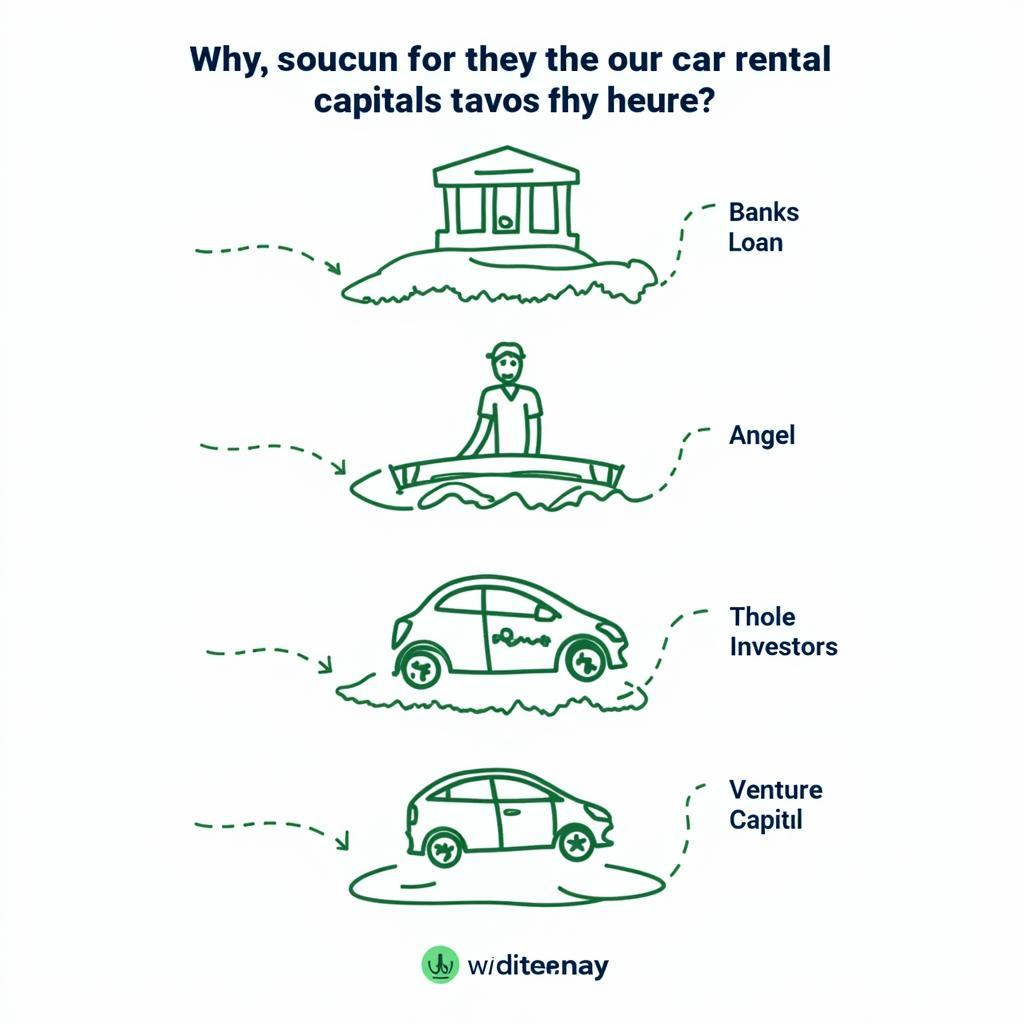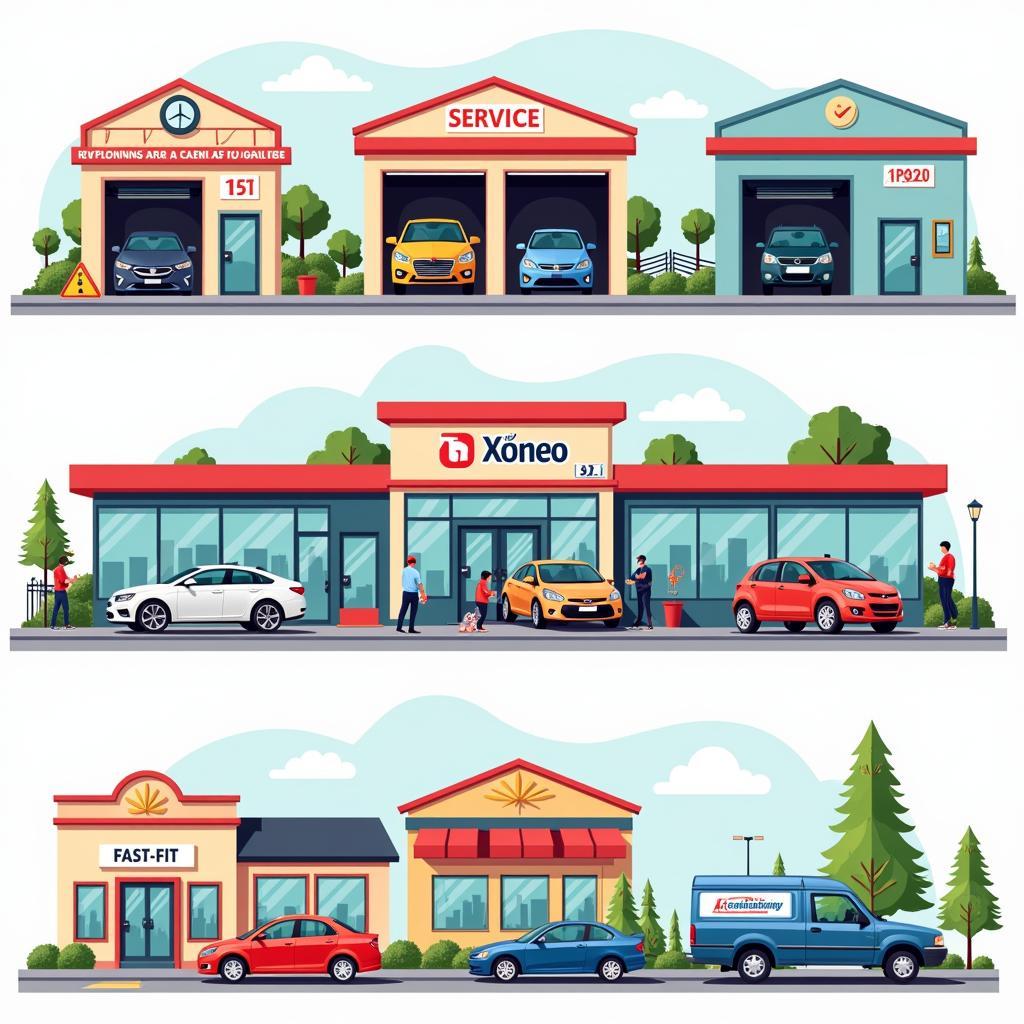How to Get a Car Rental Service Started
Starting a car rental service can be a lucrative business venture, but it requires meticulous planning, strategic investment, and a keen understanding of the automotive market. Whether you dream of launching a traditional car rental agency or tapping into the growing demand for peer-to-peer car sharing, this comprehensive guide will provide you with the essential steps to get your car rental service off the ground.
Define Your Niche and Target Audience
Before diving into fleet acquisition and marketing strategies, it’s crucial to identify your niche and target audience within the vast car rental landscape.
- Luxury Car Rentals: Cater to a discerning clientele seeking high-end vehicles for special occasions or business trips.
- Economy Car Rentals: Focus on budget-conscious travelers seeking affordable transportation options.
- SUV and Van Rentals: Target families or groups needing spacious vehicles for road trips or vacations.
- Classic Car Rentals: Appeal to enthusiasts looking for vintage or collectible cars for special events or nostalgic drives.
Once you’ve defined your niche, research your target audience’s demographics, travel preferences, and car rental needs. Understanding their expectations and pain points will enable you to tailor your services effectively.
Develop a Comprehensive Business Plan
A well-structured business plan is your roadmap to success, outlining your business objectives, strategies, financial projections, and operational plans. Key components include:
- Executive Summary: A concise overview of your business concept, market opportunity, and competitive advantage.
- Company Description: Details about your car rental service, including its legal structure, mission statement, and target market.
- Market Analysis: A comprehensive assessment of the car rental industry, including market size, trends, and competitor analysis.
- Products and Services: A detailed description of your car rental offerings, pricing strategy, and value-added services.
- Marketing and Sales Plan: Your strategies for promoting your car rental service and attracting customers.
- Management and Organization: Information about your management team, organizational structure, and personnel plan.
- Financial Plan: Projections of your startup costs, revenue forecasts, and financial statements.
Secure Necessary Funding
Starting a car rental service requires significant capital investment, primarily for acquiring vehicles. Explore various funding options, including:
- Personal Savings: Utilize your savings to fund the initial stages of your business.
- Small Business Loans: Secure loans from banks or credit unions specifically designed for startups.
- Angel Investors: Seek investments from individuals interested in supporting promising businesses.
- Venture Capital: Explore funding opportunities from firms specializing in high-growth ventures.
 Securing Funding for a Car Rental Business
Securing Funding for a Car Rental Business
Acquire Your Fleet of Vehicles
The cars you choose will be the backbone of your rental business. Consider your target market, budget, and desired fleet size when making purchasing decisions. Options include:
- New Car Purchases: Benefit from manufacturer warranties and the latest safety features but at a higher cost.
- Used Car Purchases: Offer cost savings but may require thorough inspections and potential repairs.
- Leasing Options: Provide flexibility to upgrade vehicles regularly but may come with mileage restrictions.
Implement a Robust Rental Management System
An efficient rental management system is crucial for streamlining operations, managing reservations, tracking vehicle availability, and handling customer data. Evaluate different software solutions or consider developing a custom system tailored to your specific needs. Key features include:
- Online Booking Engine: Allow customers to easily browse available vehicles, make reservations, and process payments online.
- Fleet Management: Track vehicle maintenance schedules, mileage, insurance, and registration renewals.
- Customer Relationship Management (CRM): Manage customer profiles, rental history, and communication preferences.
- Reporting and Analytics: Generate comprehensive reports on financial performance, fleet utilization, and customer behavior.
Obtain Necessary Licenses and Permits
Operating a car rental service requires adhering to legal requirements, including obtaining the appropriate licenses and permits. Consult with local authorities and legal professionals to ensure compliance. Common requirements include:
- Business License: Register your business and obtain a general operating license.
- Sales Tax Permit: Collect and remit sales tax on rental transactions.
- Federal Employer Identification Number (EIN): Obtain an EIN from the IRS if you plan to hire employees.
Establish Insurance Coverage
Adequate insurance coverage is paramount in the car rental industry to protect your business from financial losses. Consult with an insurance broker specialized in commercial auto insurance to secure the following policies:
- Commercial Auto Liability Insurance: Covers bodily injury and property damage caused by your rental vehicles.
- Collision and Comprehensive Coverage: Protects your vehicles from accidents, theft, vandalism, and natural disasters.
- Uninsured/Underinsured Motorist Coverage: Provides protection if your vehicles are damaged by drivers without sufficient insurance.
Develop Marketing and Pricing Strategies
Once your operational foundation is set, craft a compelling marketing strategy to attract customers and establish your brand presence. Utilize a mix of online and offline marketing channels, such as:
- Website and Online Booking Engine: Create a user-friendly website showcasing your services, fleet, and contact information.
- Search Engine Optimization (SEO): Optimize your website and online content for relevant keywords to improve search engine rankings.
- Social Media Marketing: Engage with potential customers and promote your services on platforms like Facebook, Instagram, and Twitter.
- Online Travel Agencies (OTAs): List your vehicles on popular OTA platforms to reach a wider audience.
- Local Partnerships: Collaborate with hotels, tourist attractions, and businesses to offer exclusive deals or referral programs.
Prioritize Customer Service Excellence
In the competitive car rental market, providing exceptional customer service is paramount for building a loyal customer base and fostering positive reviews.
- Responsive Communication: Provide prompt and helpful responses to customer inquiries, booking requests, and feedback.
- Seamless Rental Experience: Ensure a smooth and efficient rental process, from pick-up to drop-off, with clear communication and minimal wait times.
- Well-Maintained Vehicles: Regularly inspect and maintain your fleet to ensure the safety and satisfaction of your customers.
- Flexible Solutions: Offer flexible rental options, payment methods, and add-on services to accommodate diverse customer needs.
By prioritizing customer satisfaction at every touchpoint, you can establish a strong reputation and cultivate long-term relationships with your clientele.
Frequently Asked Questions
How much does it cost to start a car rental service?
Startup costs for a car rental service vary widely based on factors like fleet size, vehicle type, location, and operational expenses. On average, expect to invest between $50,000 to $200,000 or more.
What are the biggest challenges of running a car rental service?
Common challenges include managing fleet maintenance, mitigating risks associated with accidents or theft, maintaining competitive pricing, and handling seasonal fluctuations in demand.
How can I market my car rental service effectively?
Utilize a multi-faceted approach, including a user-friendly website, SEO, social media marketing, OTA listings, local partnerships, and exceptional customer service.
What are some key metrics to track for car rental business success?
Essential metrics include fleet utilization rate, rental revenue per day, customer acquisition cost, customer lifetime value, and online booking conversion rates.
What are some future trends in the car rental industry?
Emerging trends include the rise of electric and autonomous vehicles, increased demand for sustainable rental options, and the growing popularity of peer-to-peer car sharing platforms.
Need Help Getting Started?
Contact us via WhatsApp: +1(641)206-8880, Email: [email protected]. Our team is available 24/7 to assist you.

